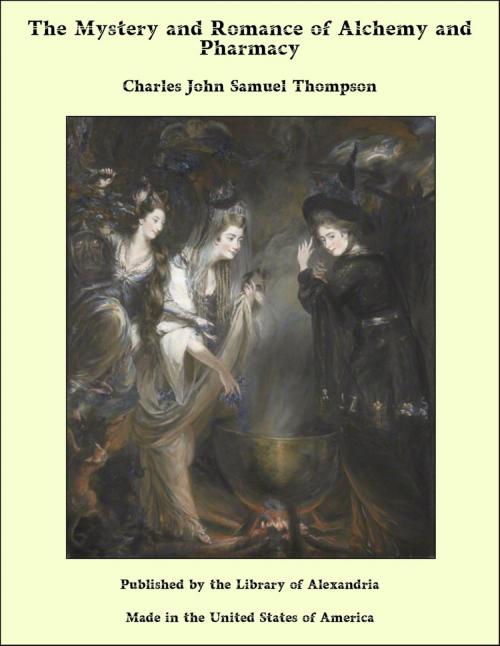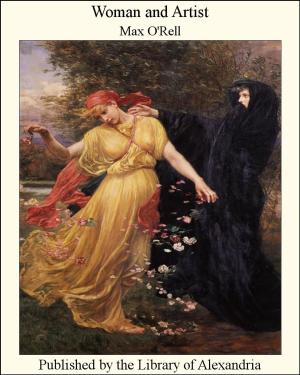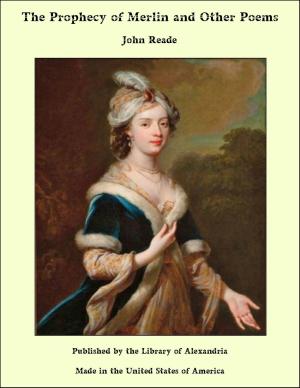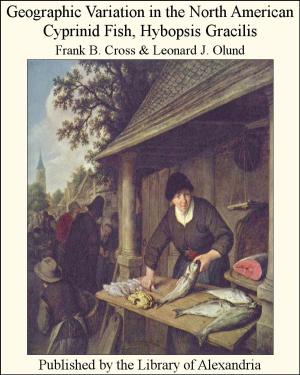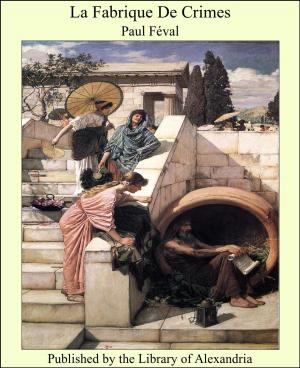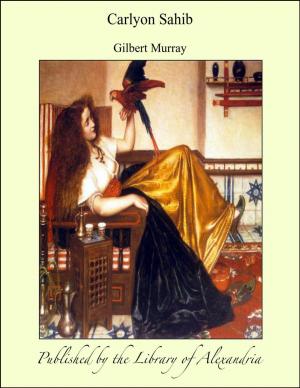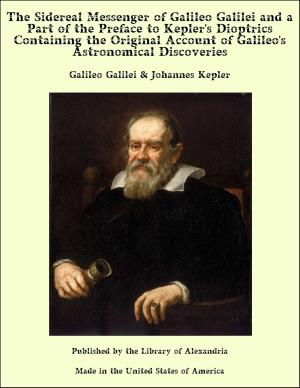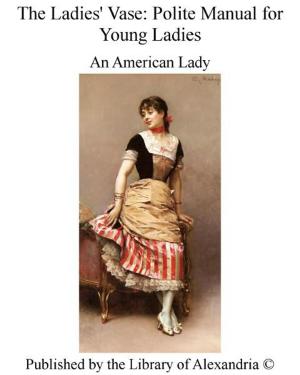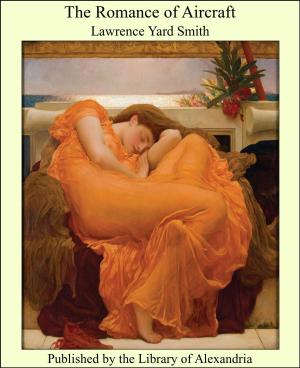The Mystery and Romance of Alchemy and Pharmacy
Nonfiction, Religion & Spirituality, New Age, History, Fiction & Literature| Author: | Charles John Samuel Thompson | ISBN: | 9781465611154 |
| Publisher: | Library of Alexandria | Publication: | March 8, 2015 |
| Imprint: | Language: | English |
| Author: | Charles John Samuel Thompson |
| ISBN: | 9781465611154 |
| Publisher: | Library of Alexandria |
| Publication: | March 8, 2015 |
| Imprint: | |
| Language: | English |
Dr. v. Oefele states of pharmacy before the time of Hippocrates, that although the practice of medicine was not separated from pharmacy among the Greeks and Romans, there was such a separation among the ancient Egyptians, from whom the distinction was handed down to the Copts, and by them to the Arabians; and, in fact, that the term pharmacist is probably of Egyptian origin, being derived from Ph-ar-maki, which signifies the preparation of medicine from drugs. The Egyptian pharmaki who were engaged in that occupation belonged to the higher social ranks of writers or academically-educated persons, comprising also the priests, physicians, statesmen, and military commanders. The Jews were indebted to Egypt for their primary ideas of medicine, but they cast away the ideas of demonology and magic which clouded what was good in the practice of Egypt. The Talmud recommends onions for worms, and wine, pepper, and asafœtida for flatulency. The Talmudists are responsible for calling the earth, air, fire, and water elementary bodies. In the middle ages the Jews rendered service to the healing art, and had a large share in the scientific work connected with the Arab domination of Spain. In China the use of drugs goes back to a very remote age, and alchemy was practised by the Chinese long previous to its being known in Europe. For two centuries prior to the Christian era, and for four or more subsequent, the transmutation of the base metals into gold, and the composition of the elixir of immortality, were questions ardently studied by the Chinese. It is, moreover, a matter of history that intercourse between China and Persia was frequent both before and after the Mahomedan conquest of the latter country; that embassies from Persia as well as from the Arabs, and even from the Greeks in Constantinople, visited the court of the Chinese emperor in Shansi; that Arab traders settled in China, and that there was frequent intercourse by sea between China and the Persian Gulf; and lastly, that China had an extensive alchemical literature anterior to the period when alchemy was studied in the West. All these facts go to prove that the ancient science known as alchemy was originated by the Chinese, and not by the disciples of Mahomed, who only acquired the knowledge at second hand.
Dr. v. Oefele states of pharmacy before the time of Hippocrates, that although the practice of medicine was not separated from pharmacy among the Greeks and Romans, there was such a separation among the ancient Egyptians, from whom the distinction was handed down to the Copts, and by them to the Arabians; and, in fact, that the term pharmacist is probably of Egyptian origin, being derived from Ph-ar-maki, which signifies the preparation of medicine from drugs. The Egyptian pharmaki who were engaged in that occupation belonged to the higher social ranks of writers or academically-educated persons, comprising also the priests, physicians, statesmen, and military commanders. The Jews were indebted to Egypt for their primary ideas of medicine, but they cast away the ideas of demonology and magic which clouded what was good in the practice of Egypt. The Talmud recommends onions for worms, and wine, pepper, and asafœtida for flatulency. The Talmudists are responsible for calling the earth, air, fire, and water elementary bodies. In the middle ages the Jews rendered service to the healing art, and had a large share in the scientific work connected with the Arab domination of Spain. In China the use of drugs goes back to a very remote age, and alchemy was practised by the Chinese long previous to its being known in Europe. For two centuries prior to the Christian era, and for four or more subsequent, the transmutation of the base metals into gold, and the composition of the elixir of immortality, were questions ardently studied by the Chinese. It is, moreover, a matter of history that intercourse between China and Persia was frequent both before and after the Mahomedan conquest of the latter country; that embassies from Persia as well as from the Arabs, and even from the Greeks in Constantinople, visited the court of the Chinese emperor in Shansi; that Arab traders settled in China, and that there was frequent intercourse by sea between China and the Persian Gulf; and lastly, that China had an extensive alchemical literature anterior to the period when alchemy was studied in the West. All these facts go to prove that the ancient science known as alchemy was originated by the Chinese, and not by the disciples of Mahomed, who only acquired the knowledge at second hand.
